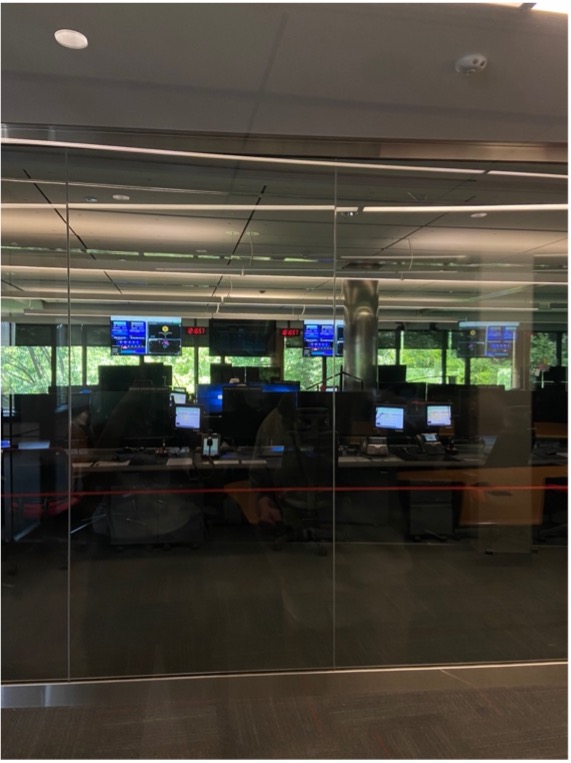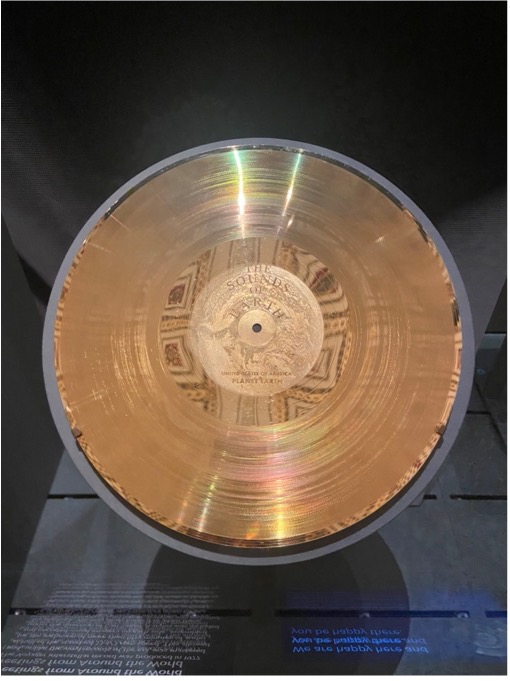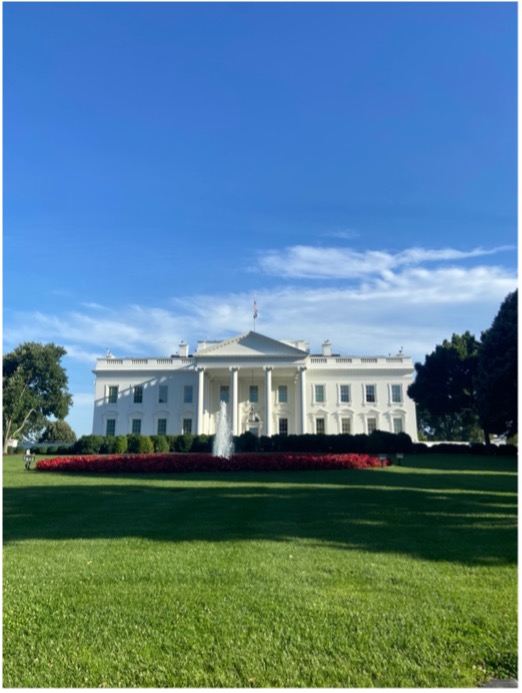"If you look for it, outer space is all around!"
By Montse Zeron
June has been an incredibly busy month! As I’ve continued to work on my research project, I stay up to date with news while learning more and more about space and science diplomacy every day.

This month I took my planned trip to Washington D.C to conduct oral history interviews with scientists involved in the James Webb Space Telescope (JWST). While not easy to prepare for, the interview process has been highly rewarding for both the development of my research project and my overall understanding of the field. It’s been truly incredible to have one-on-one interactions with the individuals that contributed to the creation of the most powerful telescope ever build. Their stories are very inspiring and will provide valuable insight to other scholars as their recollections become available through the existing oral history repository of the American Institute of Physics.
After conducting an interview at Johns Hopkins University, I walked over to the Space Telescope Science Institute (JWST’s Mission Operations Center) for a meeting and had a chance to walk around the center where they control JWST.

Left side: JWST Mission Operations Center at the Space Telescope Science Institute (STScI) in Baltimore, MD. Right side: Montse at STScI.
During that trip, I also had the chance to visit the archives at NASA headquarters to consult documents relating to space/science diplomacy as well as anything available on the Webb telescope.

NASA Headquarters in Washington D.C
When I had some downtime, I enjoyed walking around and visiting the different monuments, museums, and attractions in Washington D.C. As I increasingly notice: if you look for it, outer space is all around!


Left side: Golden Record (currently aboard the two Voyager spacecraft, launched in 1977 by NASA) replica at the Library of Congress. Right side: The White House, Washington D.C.
As I continue working on my research, I also consider what will come of it; my hope is that this project will make a significant contribution to what is still a niche and undertheorized topic in the field of international relations. With the growing awareness in the subject of space diplomacy, this research project will offer some insight on the role of diplomacy on space operations with a particular focus on the James Webb Space Telescope. This case study will allow me to analyze the role of international relations on the inception, development, and operation of Webb, and the way that such framework (and its history) will contribute to the development of future space missions. In addition to the honors thesis I will write, another contribution that will come out of this project is the set of interviews that will become part of the permanent oral history collection at the Niels Bohr Library of the American Institute of Physics, which houses a key repository detailing the history of the physical sciences. Both contributions will enhance the understanding of contemporary international affairs, diplomatic practices, and space studies.
Coming up next: I’ll be traveling across the Atlantic to interview the European-based individuals participating in my project!

